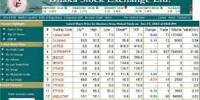Commonly Used Documents in Foreign Exchange
In Foreign Exchange Department different types of documents are essentially needed. So a short description of important documents is given here.
Letter of Credit (L/C) :
Letter of Credit (L/C) can be defined as a “credit contract” whereby the buyers bank is committed (on behalf of the buyer) to place an agreed amount of money at the sellers disposal under some agreed conditions. Since the agreed conditions include, amongst other things, the presentation of some specified documents, the letter of credit is called documentary Letter of credit.
Bill of Leading :
A bill of leading is a document that is usually stipulated in a credit when the goods are dispatched by sea. It is evidence of a contract of ca5rriage, is a receipt for the goods, and is a document of title to the goods. It also constituted a document that is, or may be, needed to support an insurance claim. A bill of lading specifically states that goods are loaded for ultimate destination specifically mentioned in the credit.
- The Details on the bill Leading should include:
A description o the goods in general terms not inconsistent with a credit.
Identify marks and numbers, if any.
The name of the carrying vessel.
Evidence that the goods have been loaded on board.
The ports of shipment and discharge.
The name of the shipper, consignee, and name and address of notifying party.
The numbe5r o original bills of lading issued and the date of issuance.
Commercial Invoice :
A commercial invoice is the accounting document by which the sellers change the goods to the buyer. A commercial invoice normally includes the following information:
- Date
- Name and address of the buyer and seller.
- Order of contract number, quantity and description o the goods, unit price and the total price.
- Weight of the goods, number of the package, shipping marks and number.
- Term of delivery and payment
- Shipment details.
Certificate of origin :
Certificate of origin is a document describing the producing country of the goods. One copy of the certificate of origin should be given to the client and the remaining copy should be kept in the bank. But if there is only one copy, then the photocopy should kept in the bank and the original should be given to the client.
Inspection Certificate :
This is usually issued by an independent inspection company located in the exporting country certifying or describing the quality, specification or other aspects of the goods, as called or in the contract and the L/C.
Packing List :
Packing list is the letter describing the number of packets and their size. If there are several copies, then two copies should be given to the client and the remaining should be kept in the bank. But if there is only one copy, then the photocopy should be kept in the bank and the original copy should be given to the client.
Insurance certificate :
The insurance certificate document must-
- Be that specified in the credit.
- Cover the risk specified in the credit.
- Be consistent with the other documents in its identification of the voyage and description of the goods.
- Unless otherwise specified in the credit.
- Be a document issued and / or signed by an insurance company or its agent, or by underwriter.
- Be dated on or before the date of the date shipment as evidenced by the shipping documents
- Be for an amount at least equal to 6yhe CIF value of the goods and in the currency of credit.
Import Registration certificates (IRC) :
To import, a person should be competent to be an importer according to import and export Act, 1910. Chief controller of the Import and Export provides the registration (IRC) to importer. Applicant has to submit IRC Inventor Registration Certificate. It is a certificate being renewed every year. This certificate is necessary if the contract is made between the buyers and the agent of the sellers. IRC is one of two types- COM and IND. COM is given for commerce purpose and IND is given or industrial purpose.
Letter of Indent :
Many sellers have their agent in seller’s country. I the contract o buying is made between the buyers and the agent o the sellers then letter o indent is required.
Proforma Invoice or Indenters Certificate :
I the contract is made directly between the buyers and the seller’s then letter o Proforma Invoice is needed.
Forwarding :
Forwarding is the letter given by the advising bank to the issuing bank. Several copies are sent to the issuing bank. All copies including origin should be kept in the bank.
Tax Identification Number or (TIN) :
Recently there has been made a provision to give a certificate named TIN (Tax payers Identification Number). Taxation department issues this certificate.
Shipment Advice :
The copy mentioning the name o the insurance company should be given to the client and the remaining copies should be kept in the bank. But I only one copy is given then the photocopy should be kept in the bank and the original copy should be given to the bank.
















